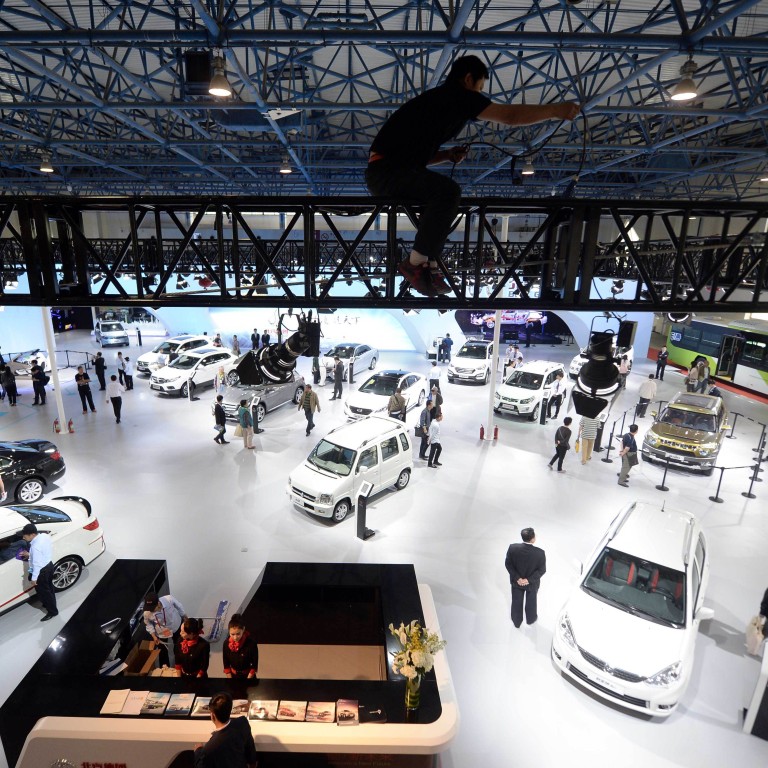
Outdated mindset is blocking China's new ideas, say analysts
Revamp in education, less interference in market and easier financing for small firms are needed
A leading mainland Chinese inventor-entrepreneur says he may not have surrendered his professorship at an elite university if government policy at the time had allowed him to set up his company while still staying in his post.
"If there had been an option, I would have definitely considered it," Zhong Faping - one of the best-known figures in the new energy auto technology sector - said. Zhong quit his job at Tsinghua University in 1997 to establish Hunan Corun New Energy, a leading producer of batteries for hybrid vehicles.
The mainland has launched unprecedented measures in recent months to accelerate innovation. The government vowed to support university students who decide to leave early to start a business before returning to complete their studies. It also decided to reduce tax hurdles for emerging industries, such as e-commerce.
To spur "mass entrepreneurship and innovation", the State Council also said teachers would be encouraged to start their own businesses while staying employed at their state-run universities and research institutes.
Zhong welcomed the moves, but said they would not be enough. The government itself needed to change its mindset on innovation, he argued.
"Without this, intelligent people might only drown after they decide to go to sea," Zhong said, referring to a saying about officials who leave state-run posts to start their own businesses.
The mainland's growth slipped to just 7 per cent in the first quarter from a year earlier, after expanding at an average of 10 per cent in the past decade.
The growth slowdown has added urgency to the government's moves to rely on higher productivity to drive the economy. But it must provide a better environment for small innovative firms to survive, analysts say, as these are crucial to creating jobs and can operate more efficiently than most state-run players.
Deep-seated problems lie in the government's outdated mindset, according to analysts who are calling for a revamp in education, easier financing for smaller firms and less government interference in the market.
Li Qiang, a professor of social science at Tsinghua University, said the outdated education system was hindering innovation. University disciplines were still decided by the Ministry of Education, which knew less about technology and scientific development than professors.
"Meanwhile, we should further encourage collaboration between universities and enterprises," he told a forum on workforce issues in Beijing last week.
Li's suggestion was echoed by Zhong, although he said enterprises that could swiftly adapt to market changes should lead the nation's innovation campaigns.
Founded from scratch nearly two decades ago, Hunan Corun New Energy is now a leading battery maker for hybrid electric vehicles in China.
The government, Zhong said, had reached too far by dictating specific types of innovative business models that companies must adopt. Those that did not follow the policies closely risked losing substantial subsidies.
For example, companies producing purely electric vehicles received about 30 billion yuan (HK$37.5 billion) in government subsidies over the past five years, but hybrid carmakers received little even though they were also energy efficient, Zhong said.
While the mainland campaign to cut emissions and modernise industry had begun, it might miss growth opportunities because of such limitations, Zhong said.
"The government should only position itself as a judge. All it needs to do is to create a level playing field to allow all types of businesses to flourish," he said.
Asian Development Bank economist Niny Khor said governments across developing Asia, including China, needed to give better access to financing for new enterprises, and help train a larger pool of skilled workers.
Alternatives including equity financing and bond markets could help small companies raise funds, she said. "Investment in human capital and [research and development] is also very important, as well as property rights, so that entrepreneurs can bring these innovations to the market," she said.
The mainland lagged many countries in developing human capital, the World Economic Forum said last week. It estimated that if human capital was properly utilised, global gross domestic product would rise by 20 per cent.
The mainland had optimised 67 per cent of its human capital, ranking it No 64 in the world.
Fan Gang, director of the National Economic Research Institute, last week said legal reforms were needed to take account of new business models. "The legal system has to adapt to the new situation, and new technology," he said. He was referring to the official crackdown on the cab-hiring service Uber and taxi rides using private cars booked via their own smartphone apps.
But Fan warned regulatory change might be difficult. "I think that's something the business sector should be aware of. [They] should be lobbying harder."

